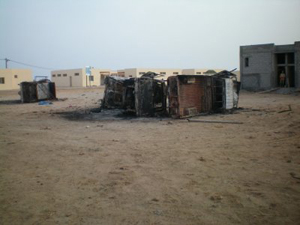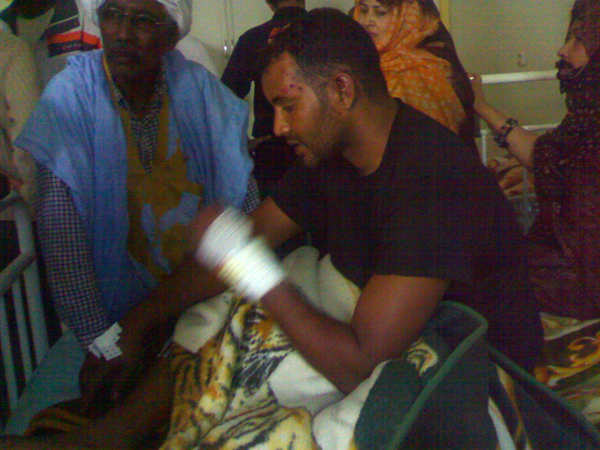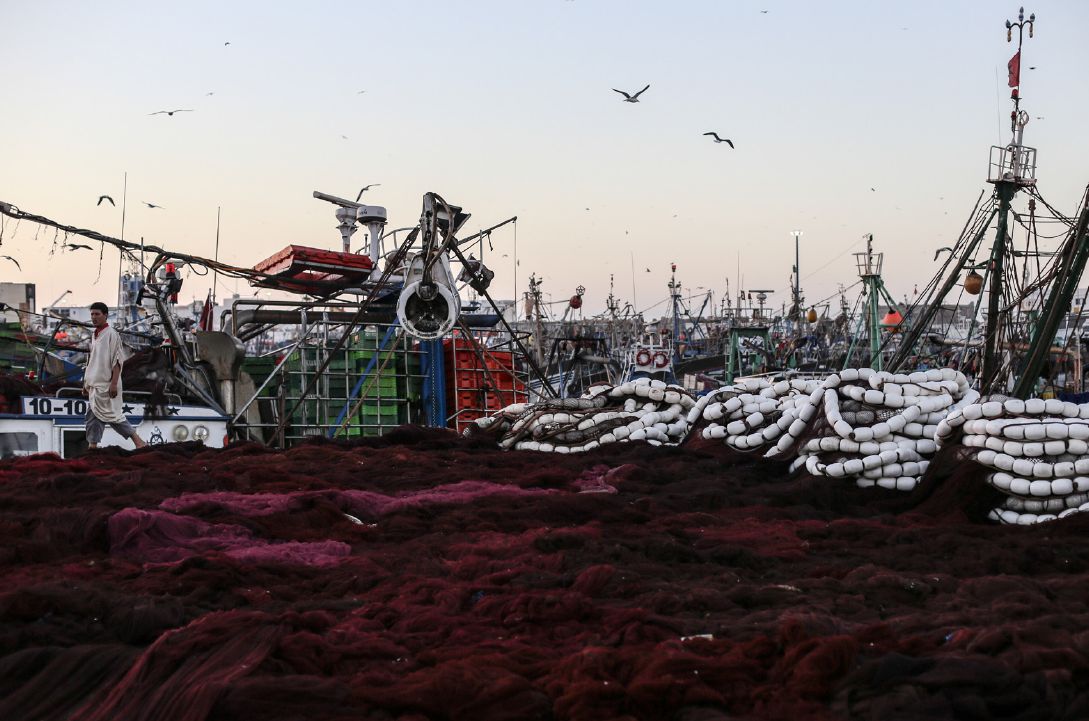Another attack on Saharawi fishermen in Dakhla

Not even two weeks after a Moroccan police intervention brutally ended a Saharawi fishermen\'s demonstration, Dakhla is once again the scene for a horrific attack against Saharawi citizens.
Published 24 July 2008
Not even two weeks after a Moroccan police intervention brutally ended a Saharawi fishermen's demonstration, Dakhla is once again the scene for a horrific attack against Saharawi citizens.
In the evening of the 21st of July, reportedly hundreds of Moroccan settlers, mostly engaged in fishing activities, attacked Saharawi fishermen and fish traders in the town of Itereft, about 100 kilometers from the city of Dakhla, occupied Western Sahara.
A report send by El Mami Amar Salem, Chairman of the Dakhla Committee against Torture, to the Saharawi Communication Service on the Canary Islands, states that about 60 Saharawi citizens got injured, five of them severly wounded and two people are still missing.
Witnesses claim that people were attacked with knifes, sticks, gasoline and even axes. Several vehicles were burned.

Dozens had to be hospitalized. Emotional outcries by the victims’ family-members resulted in police violence, which in turn lead to more injuries and arrests.
The facts were later on repeated in the Um Tunfi quarter. Witnesses say that the commandor of the police forces was no one else than Hariz Alarbi, the notorious torturer, whose activities are currently being investigated by judge Baltasar Garzón of the Spanish National High Court.
Two weeks ago, 9 Saharawi civilians got injured after the Moroccan police stopped a peaceful demonstration against the plundering of Western Sahara’s fisheries resources. Some 16.000 Moroccan owned fishing boats operate in the Dakhla area, selling their catches to the 137 processing enterprises that are also located here.
Observers believe that the atrocities commited against Saharawi citizens are an attempt to expel the Saharawi from the fisheries sector, although the UN considers the latter to be "the only ones entitled to these fish resources".

News
MSC’s name misused to whitewash controversial fish trade
The certification scheme MSC guarantees that no fisheries in Western Sahara are certified. But Spanish food distributors give another impression.
16 September 2025
IFS Food’s secret: errors fuel food fraud
IFS Food - a label meant to guarantee protection against food fraud - facilitates a practice of food fraud.
07 August 2025
Green Reefers aided Russia in plundering Saharawi fish
Last week, the Norwegian shipping company Green Reefers delivered frozen fish to Russia that had been caught in occupied Western Sahara in violation of international law.
17 October 2024
Report: EU-Morocco fisheries depends on illegal occupation
An external evaluation report on the EU-Morocco fisheries agreement 2019-2023 confirms that the agreement revolves, in its entirety, around Western Sahara.
08 March 2024



